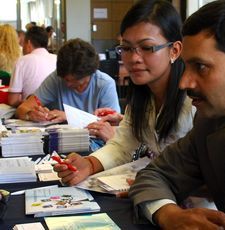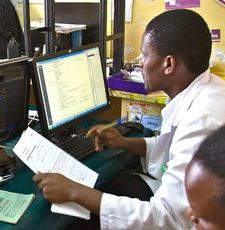
ABOUT THE RESOURCE
‘Disability tools’ was the topic of the EIFL-FOSS programme’s first themed week. The week kicked off with a remote presentation attended by 25 people from Africa, Asia and Europe. They learned about the most commonly used and easy to install FOSS tools that support users with disabilities.
The FOSS computer-based tools focused on during the presentation can help those who are 'print impaired'; that is, blind, visually impaired, dyslexic, or colour-blind. Without such tools, persons with disabilities are effectively locked out of the access to valuable online resources. Libraries learned during the presentation that with minimal effort on their part they can open up a world of possibilities for their patrons with disabilities.
There are a range of tools available, among them are those that magnify the screen, change the font colours, allow users who cannot use a keyboard to navigate with a mouse only, and screen readers that read the pages out loud.
Disability tools project in Zimbabwe
The presentation also highlighted case studies of libraries that are piloting or have embedded particular tools already, in particular the University of Zimbabwe who are currently piloting, the following tools:
- Virtual Magnifying Glass
- Balabolka (text-to-speech tool)
- (jisctechdis.ac.uk/techdis/keyinitiatives/organisationaleffectiveness/enablingtechnology/accessapps) AccessApps (suite of disability tools that will run direct from a data stick)
Advocacy needed
Guest presenter Steve Lee from the UK's OSSwatch service highlighted the need for libraries to engage as a community on this issue by providing feedback on their experiences and developments in order to enable further improvement of the tools.
Resources
A publicly accessible collaborative document was created featuring a list of all of the titanpad.com/eifl-foss-disability-tools tools covered (and URLs for further information), case studies, and a Q&A section.


SHARE / PRINT









